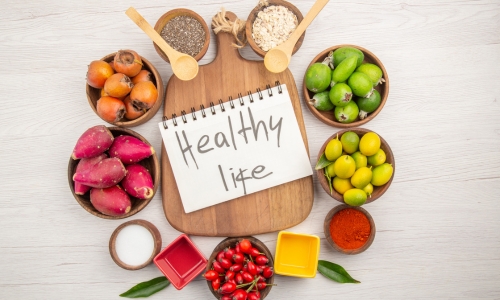If you often feel bloated, gassy, or uncomfortable after eating, your gut may be trying to tell you something. Bloating and indigestion are common signs of poor gut function—but the good news is that simple gut health strategies can help you feel better naturally.
These proven, natural methods can improve your digestion, reduce discomfort, and support your overall well-being—without relying on medication.
What Causes Bloating and Indigestion?
Understanding the root causes helps you treat the problem effectively, not just the symptoms. Common culprits include:
-
Poor eating habits (eating too quickly or too much)
-
Lack of dietary fiber
-
Processed or greasy foods
-
Dysbiosis (an imbalance in gut bacteria)
-
Food intolerances (like dairy or gluten)
-
Stress and anxiety
-
Dehydration
-
Lack of physical activity
These triggers can slow down your digestive process, cause fermentation in the gut, and create gas buildup—leading to bloating and indigestion.
8 Proven Gut Health Strategies to Reduce Bloating
1. Increase Fiber Intake Gradually
Fiber supports healthy bowel movements and feeds good gut bacteria. Aim for 25–30g of fiber per day from sources like:
-
Oats
-
Lentils
-
Apples
-
Chia seeds
-
Leafy greens
➡️ Tip: Increase fiber slowly and drink plenty of water to avoid temporary gas or discomfort.
2. Incorporate Probiotic-Rich Foods
Probiotics are live bacteria that support a healthy gut microbiome. Natural sources include:
-
Yogurt (with live cultures)
-
Kefir
-
Kimchi
-
Sauerkraut
-
Miso
-
Kombucha
They can reduce inflammation and improve digestion by restoring gut balance.
3. Chew Your Food Thoroughly
Digestion starts in the mouth. Chewing properly reduces the load on your stomach and enhances nutrient absorption.
➡️ Try this: Count to 20 before swallowing each bite. It helps slow down your eating and minimizes bloating.
4. Stay Hydrated All Day
Water aids digestion by helping break down food and prevent constipation. Aim for:
-
8+ glasses of water per day
-
Herbal teas like ginger or peppermint (which also soothe the gut)
5. Limit Processed and High-Fat Foods
Highly processed foods are often low in fiber and high in sugar and fats that disrupt digestion. Reduce intake of:
-
Fried snacks
-
Sugary drinks
-
Packaged meals
-
Red meat in excess
Replace them with real, whole foods like vegetables, fruits, legumes, and lean protein.
6. Practice Mindful Eating
Stress affects gut health. Try eating in a calm environment and avoid distractions like phones or TV while eating. Practicing gratitude or deep breathing before meals can reduce indigestion and promote better digestion.
7. Exercise Regularly
Even a 20-minute walk after meals can help food move more efficiently through the digestive tract. Movement also reduces bloating and supports overall gut health.
8. Identify and Avoid Trigger Foods
Common trigger foods include:
-
Dairy (lactose intolerance)
-
Gluten (for some individuals)
-
Beans and legumes (for gas-prone people)
-
Artificial sweeteners (like sorbitol)
Keep a food diary to track what causes your symptoms and eliminate or reduce those items.
When to Seek Medical Help
If bloating or indigestion becomes frequent, painful, or is accompanied by other symptoms (like weight loss, vomiting, or fatigue), it’s important to see a doctor. Conditions like IBS, GERD, SIBO, or food intolerances may require targeted treatment.
Conclusion
Small daily changes can have a big impact on your gut. These gut health strategies are simple, science-backed, and easy to integrate into your routine. Whether you’re fighting occasional bloating or working toward long-term digestive wellness, these steps will help you feel lighter, healthier, and more energized—naturally.

